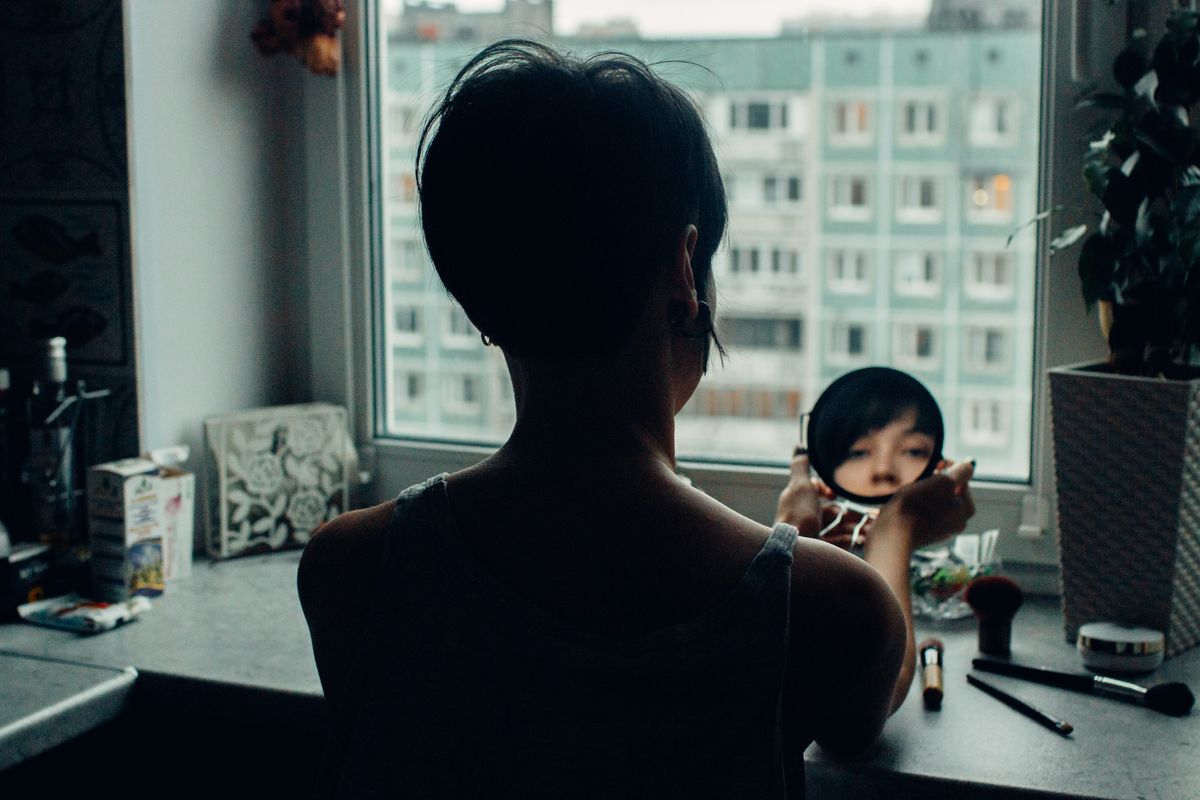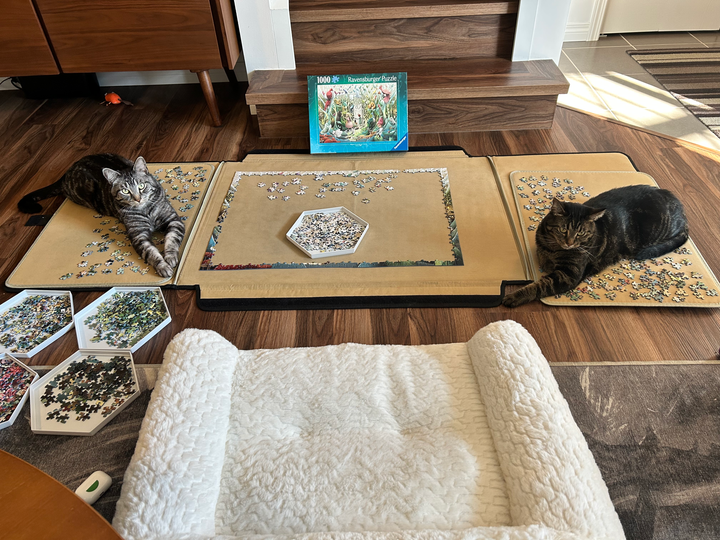How a Daily Reflection Practice Cultivates Self Awareness and Joy
Learn how to to create a daily reflection practice to cultivate self-awareness and joy!

One of the main tenets of living an intentional life is self-awareness. Knowing yourself, why you are doing the things you are doing, and getting clarity on what you want are what help you make the intentional decisions that set you on your path to your version of success.
Self-awareness takes time and practice! The first step in that practice is learning to notice things like:
- How you feel over the course of the day
- How you feel before and after certain events or situations
- Your thought process when you are making decisions
- Your automatic reaction to certain types of situations
- Your daily habits
It’s easy to stay on autopilot as you go through your day-to-day. The days and weeks slip by with the busyness of life. Being busy becomes a default where you keep moving on to the next thing without making the time to look back and reflect on:
- Your experiences;
- Why you might be feeling a certain way;
- What you have been spending your time on and if it is what you want to be spending time on; and
- If you are moving in a direction you want.
Once you start to notice and reflect, you become more self-aware, and you can begin to act differently, instead of staying on autopilot.
Cultivating self-awareness through daily-reflection
A daily reflection practice is a powerful and simple way to learn to notice and cultivate that self-awareness to help you live your intentional life.
There are many different ways to have a daily reflection practice. I have even posted a different one in the past. You might use a notebook by your bed, or an app on your phone, or a spreadsheet. How you do it doesn’t matter and there is no right or wrong way. The important thing is that you take a little time each day to reflect back and notice.
In my daily reflection practice, I use a Google sheet (template). I can access it on both my laptop and phone and have a good visual of my entries. I spend 5 or 10 minutes each night filling it out as part of my bedtime routine.
The goal is to be able to have answers to questions like
- What happened today?
- How am I feeling?
- Why am I feeling this way?
- What will I do with this information?
How to start a daily reflection practice
Pick your medium. Don’t overanalyze this step, just pick whatever initially feels right for you. You can use this Google sheet template, you can use an Excel spreadsheet, you can use a notes app on your phone, you can use a notebook that you keep beside your bed, etc.
Set an alarm or daily reminder. If you are worried you will forget when you are first starting out, set an alarm or daily reminder on your phone to go off each night during your wind-down time.
Decide on your questions. The questions are less important than the activity itself. The questions I use in my daily reflection are:
- What went well today?
- What was tricky or hard?
- What did I learn or is there anything I would do differently next time?
- What am I grateful for today?
Start filling it out! Spend a few minutes each night thinking about your day. It doesn’t have to be a ton of time, 5 or 10 minutes.
You might have days that you don’t have anything specific that you learned or would do differently. Not every day will be particularly notable. You might forget a day and decide to either skip it or fill it out as part of the next day. That’s ok too.
This practice is not meant to be a chore that has been added to your endless to-do list but rather an opportunity to take note of your day, how you spent it, and work on building up your ability to notice.
Cultivating joy through gratitude
You will notice that I include, ‘what am I grateful for today?’ as the last question in my reflection. This is an important reflection to include because I believe it is the basis of leading a joyful life.
There is even some science behind it! Some of you may be familiar with Brené Brown (https://brenebrown.com/). She is a vulnerability researcher and professor, author, and podcaster. If you haven’t read any of her work or listened to her podcast, I highly recommend them. In her book, The Gifts of Imperfection, one of the findings that emerged from over 12 years of research was that the people who described themselves as joyful all had one thing in common: an active gratitude practice.
This came as a bit of a surprise because while she expected to find that joyful people were grateful for what they had in their lives, the data indicated that it’s in fact gratitude that comes first. This is intuitive to me because it’s in alignment with noticing. You have to notice the things that you are grateful for to appreciate them!
Admittedly, some days it is easier to be grateful than others. But it’s possible to find something to be grateful for, no matter how small, every single day. It might be as simple as a stranger telling you they like your outfit when you are having a hard day. Or it might be that you spent a nice day with your family and you are grateful for the time you had with them. The what doesn’t matter, just that you find something that reminds you of the joys in life, great and small.
Tracking mood, energy, and sleep
I take my daily reflection practice a step further and also reflect on a few other areas. I also ask myself:
- How was my mood today?
- How were my energy levels?
- Did I sleep well the night before?
You can choose to add these in too, or really any other questions that are important to you. You can also keep it simple and stick to the basic questions. I like to include these because they are good signposts for me to pay attention to if I am not feeling well or struggling.
For example, if I haven’t slept well all week, it is likely both a symptom of something and potentially a contributing cause of something else. It gives me data I can look back to think about and have a better understanding of why I might be feeling the way I do. Then I can make an intentional decision about what I might do differently or how I can better take care of myself. It’s a positive feedback loop that I only get by practicing a daily reflection!
These might not be the right questions for you, but they are a place to start. They are a framework to reflect on what you did, things that were good, things that were hard, and things that you might try to do in a different way on another day. They are a way to notice patterns and be more in tune with how you feel day-to-day so you can cultivate your self-awareness and even joy!
Daily reflection spreadsheet template
Here is my daily reflection spreadsheet template that I use to give you a starting point.
Do you have an existing daily reflection practice? What is your process?
Share
Ashley Janssen

Productivity consultant, writer, speaker, serial entrepreneur, chaos calmer, introvert, cat-lady. Lover of books, fitness, old fashioned’s, basketball, and video games.
Follow me on
Twitter
or
LinkedIn.
Hire me for
1 on 1 productivity consulting
or
speaking.
Related articles

Not An Annual Reflection

The Most Popular Every Intention Articles in 2025


Comments ()